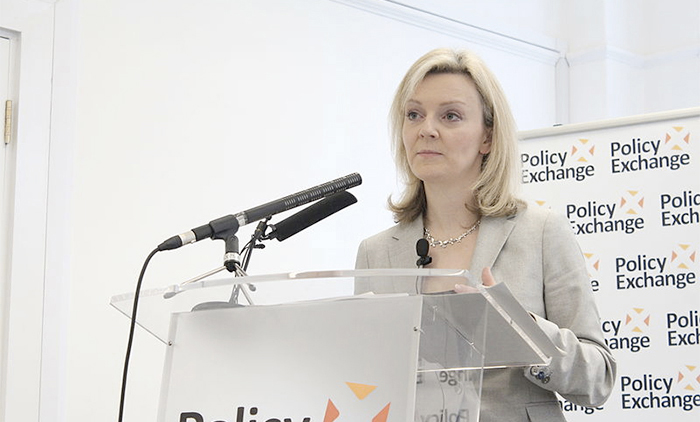
An economic plan for the food and farming sector that will ensure 'this thriving industry continues to grow and create jobs' has been revealed by Environment Secretary Elizabeth Truss.
In a speech at the National Farmers Union conference today, the Environment Secretary identified four priorities, including improving the resilience of the industry in the face of volatile global markets, opening up new markets at home and abroad, and simplifying EU regulations to free up food producers to innovate and grow their businesses.
Environment Secretary Elizabeth Truss said: "Britain’s food and farming industry is a powerhouse of our economy – contributing £100 bn each year and employing 1 in 8 people - and has huge potential to deliver further jobs and growth.
"Our long-term economic plan for food and farming will unlock the potential of this vital industry – by encouraging more talented entrepreneurs to pursue a career in food, removing unnecessary bureaucracy, protecting the industry from plant and animal diseases, and opening new markets for top quality British food both at home and overseas.
But NFU President Meurig Raymond said price volatility, such as the roller-coaster ride experienced in the dairy sector in the past two years, was the biggest thing stopping farming having the confidence to produce enough food for a self-sufficient Britain.
“In the NFU we have a clear vision of where we want to go. A vibrant, productive, profitable and competitive industry supplying the lion’s share of the food that our consumers expect and demand.”
“In the last 10 years British farmers have become much more exposed to world markets,” Mr Raymond said.
“In the world the two huge blocks of production and consumption are roughly in balance. But any small change one way or another has big consequences.”
Recently, Defra’s latest Farm Business Income forecasts predicted a decline in the profitability of farming across the majority of farming sectors and serve as a warning as to how much agriculture is susceptible to increased volatility, the NFU said.
The figures show a 13 per cent fall in incomes for dairy farmers. Similarly, the livestock sectors have suffered, with incomes on pig farms forecast to be down by 23 per cent and on poultry farms by 12 per cent. Forecasts indicate that grazing livestock farms are showing signs of recovery.
However, even with increases in income across the beef and sheep sector, profitability still remains at a very low level, with farm income in this sector projected to sit around £16,000. A marginal increase in incomes is also expected in cereal farm income.
Enabling a productive and resilient industry
- Encouraging more skilled people into the industry by increasing apprenticeships, working across the food supply chain to improve skills, and with universities to offer new further education opportunities in food – such as the country’s first food engineering degree at Sheffield Hallam
- Enabling the industry to expand and add value to products, such as through the creation of Food Enterprise Zones to kick-start local food economies and join up farming, manufacturing, distribution and retail firms
- Helping farmers and food businesses deal with global market volatility, such as exploring the feasibility of a futures market for dairy products
- Slashing red tape – Defra is on course to cut guidance by 80% over the course of this parliament, and 34,000 farm inspections have been cut by combining visits and expanding schemes to reward exemplary farms with less frequent checks
Opening up new markets at home and abroad
- Encouraging more top-quality regional foods to apply for Protected Food Name status. The UK currently has 62 but has a long way to go to match the 219 protected foods in France
- Buying more high quality British food in schools, hospitals and public sector canteens – creating up to £400 million in new business for local businesses
- Pushing the EU Commission to make country of origin labelling mandatory for dairy products
- Opening up new export markets – the government has opened more than 600 new markets – and focussing on the most lucrative opportunities such as trade with China and the US
- Opening markets in the economies of the future – such as dairy markets in Latin America and sub-Saharan Africa
Making EU rules work for us
- We have told the EU Commission that decisions on pesticides must be proportionate and based on science to avoid holding back competitiveness of our arable farmers
- Encouraging Europe to embrace scientific advances such as GM – the EU recently agreed to permit greater national discretion on GM products
- Working with the Agriculture Commissioner Phil Hogan to simplify the Common Agricultural Policy. A list of practical proposals developed with the farming industry are being presented to the commission
- Making it as simple as possible for farmers to claim their CAP payments through the Rural Payments digital service
Protecting this country from plant and animal disease
- Upholding our world-class system for protecting the country against animal disease. The number of frontline vets to protect farm businesses from animal diseases has been maintained
- Tackling bovine TB through our comprehensive strategy which aims to eradicate the disease by 2038
